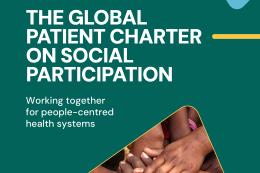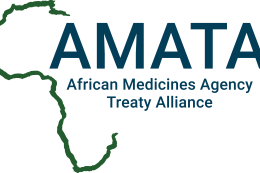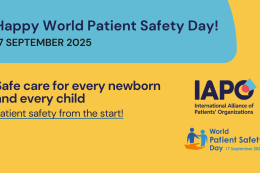Speaking out during economic uncertainty

IAPO member South African Depression and Anxiety Group (SADAG) explores some of the issues they are facing at the moment and how they are working with others to tackle a society-wide problem.
Contributed by Zane Wilson, Founder of SADAG.
Mentally ill patients are amongst the most vulnerable groups of society – people left to the mercy of government systems due to poverty, stigma and lack of access to treatment.
Under the South African Constitution, all citizens have certain inalienable rights with regard to health care like the right to a healthy and safe environment; treatment and rehabilitation; provision for special needs; continuity of care; and the right to complain about health services. Sadly, not every patient has access to these rights. Despite the vast majority of South Africans relying on public health care services (80% of the population), mental health care facilities in government hospitals are severely restricted. The lack of money from government going into mental health care, the severe lack of doctors and mental health care facilities in many areas are big problems facing South Africa.
Contract changes and implications for thousands of lives
In November 2015, the South African mental health community was shaken when the Gauteng Department of Health announced the termination of contract with hospital group Life Esidimeni – a termination that will see hundreds of society’s most defenceless patients on the streets or in unfit and inappropriate care facilities. The Gauteng Department of Health announced that patients would be moved to NGOs, hospitals, or into the care of their families. As feared, the implementation of the Department’s termination strategy has brought a severe disruption to mental health care services in its wake. The termination of the contract with Life Healthcare and the resulting closure of facilities raises a number of serious questions about the ways in which mental health services are being regarded, prioritised and planned within the South African context.
Life Esidimeni (meaning ‘Place of Dignity’) is the largest public/private hospital partnership in South Africa. Under contract to the national and provincial Departments of Health, Life Esidimeni has been delivering health and mental health care services to indigent patients for over five decades. The facility provides inpatient care, treatment and rehabilitation for 2,000 people with chronic psychiatric disorders and severe intellectual disability.
Despite the vast majority of South Africans relying on public health care services (80% of the population), mental health care facilities in government hospitals are severely restricted. The lack of money from government going into mental health care, the severe lack of doctors and mental health care facilities in many areas are big problems facing South Africa.
The only home they have known
For many of these people, Life Esidimeni is the only home they have known. “Some of these people were brought here when they were just babies – their families left them, they have no-one except Life”, one nurse says. A number of patients have been at Life facilities for over 20 years and cannot live outside of the care they receive there. Family members expressed how their loved ones had only stabilised as a result of being at Life Esidimeni and they feared a decline in their level of functioning and, in some cases, a resort to violence due to instability, were they to be moved home or to another facility. In addition, many of the families expressed their anxiety at the prospect of having family members placed back in their homes – including in retirement homes, in homes with small children, and in small spaces not suited for additional people.
“Services don’t exist for us, there are no resources for people like us”, weeps a single mother and piece-work domestic worker. Her daughter is severely paranoid schizophrenic and a danger to herself, her children and her mother. Until she was finally admitted to Life Esidimeni, Rachel lived in constant fear of her daughter. “She loves fire and if she’s not watched, she lights everything.” One of Rachel’s granddaughters was killed in such a fire. “It is not us who don’t care about our mentally ill loved ones. It is not us who place stigma on them! It’s the government who won’t allow us to help them by providing care.”
A strong voice for mental health
The South African Depression and Anxiety Group (SADAG) is South Africa’s foremost mental health NGO founded in 1994. “SADAG is a force for change and the strongest voice for mental health and the rights of patients at the moment”, says Zane Wilson, SADAG’s founder. As the nation’s leading advocacy and educational voice on mental health, SADAG has been tirelessly committed to improving the mental health and well-being of thousands of South Africans.
"De-institutionalisation or downscaling of institutionalised care ideally needs to go hand in hand with the upscaling of community based care..." - Dr Talatala
Working with others
SADAG created a joint taskforce of stakeholders, including a family committee, psychiatrists and another mental health NGO, and together sought legal advice and representation. Despite undertaking to do so on several occasions, and being under court order to do so, the Gauteng Department of Health has failed to provide meaningful consultation with SADAG and in spite of regular meetings with the Department, stakeholders have not been advised of the process of assessing users to identify their needs; the assessment of NGOs and hospitals; plans for capacity development; or plans for the transfer and placement of residents. This information has been repeatedly requested but never provided.
Statements made by the Department of Health regarding the termination of the Life Esidimeni contract seem to suggest that the contract termination is being done in the spirit of de-institutionalisation. “De-institutionalisation or downscaling of institutionalised care ideally needs to go hand in hand with the upscaling of community based care, and there is no indication that this seems to be the Department’s intention”, says South African Society of Psychiatry (SASOP) Chairman, Dr Talatala.
Choosing profit over patient
There have been numerous indications that in its planning process for Life Esidimeni users, the Department didn't look at the profiles of patients, they only looked at cost. The closure of Life Esidimeni facilities poses serious human rights and constitutional threats to society’s most vulnerable population. “This process was not done under any pretence of consultation with users – making hope for the protection of patients’ rights and dignity slim at best”, says Chambers. Putting these patients back into hospital is regressing 20 years in terms of care and this is not a long-term solution. “The department seems to be paying lip-service; no information is being shared, and we know NGOs and hospitals are not ready or capacitated,” says Chambers. “There is no sustainability or re-integration plan in any real sense of the word.”
The majority of the patients at Life Esidimeni facilities are at the higher end of the care spectrum. This means that in many cases patients require intensive, 24-hour clinical care, which is not in-line with the type of services rendered by NGOs at community level. This raises concerns about Government’s supposed notion that a like-for-like transfer of patients will take place as the facilities are closed. It also raises concerns about Government’s understanding of the different types of needs related to mental health care users at differing levels of functionality – even more worrying as the woman leading the closures is a doctor herself. “A patient’s health and wellness affects more than just their own life”, says SADAG’s Director, Cassey Chambers. “When an institutionalised patient is released, without care or support from professionals, how many lives are impacted?”
“A patient’s health and wellness affects more than just their own life”, says SADAG’s Director, Cassey Chambers. “When an institutionalised patient is released, without care or support from professionals, how many lives are impacted?”
Clearing out patients
By 1 June 2016, all Life Esidimeni facilities were cleared of their government-subsidised patients. The patients of Life Esidimeni have been bussed to new locations – NGOs or psychiatric hospitals, often without their families’ knowledge. SADAG has been liaising with the families and have received very concerning reports. Families have been left searching for their loved ones because they have not been notified about where they are being moved to.
Patients have been moved to inappropriate NGOs – for example: adult patients have been housed at a children’s facility which strictly contradicts South Africa’s Child Protect Act. Many of the patients have been moved without their documentation, ID books, medical records or belongings. SADAG also heard reports that four patients died during the transition period over the weekend – although neither Life Hospital nor the Department of Health can confirm the deaths. SADAG has reports and pictures of patients being left on floors, sleeping on floors, having no supervision, no clothes, no medication – “It's been the disaster that we were hoping to avoid”, says Chambers.
In a heart-breaking addition, elderly family members (usually parents) were told that there was no more space for their loved ones and that they should take them home. These people are unable to take care of a very sick, psychotic psychiatric patient. Many families are afraid to look after their loved ones and don’t know what to expect in the coming months. “According to the law, patients should receive better or equal care when moved. But our loved ones have been moved to facilities that cannot care for their needs, their clothes have been stolen, they are not being fed properly – how is this better or equal?”, asks Nomvula.
“There may be times when we are powerless to prevent injustice, but there must never be a time when we fail to protest.” - Elie Wiesel
Protesting injustice
Human rights activist, Elie Wiesel, said: “There may be times when we are powerless to prevent injustice, but there must never be a time when we fail to protest.” In this vein, stakeholders marched to the Department of Health and delivered hand written testimonials of human rights abuses and a memorandum of demands. It’s our collective responsibility to ensure that the rights and dignities of all vulnerable people are protected. No patient deserves to lose their human and constitutional rights because they are too ill or too poor to speak out.



